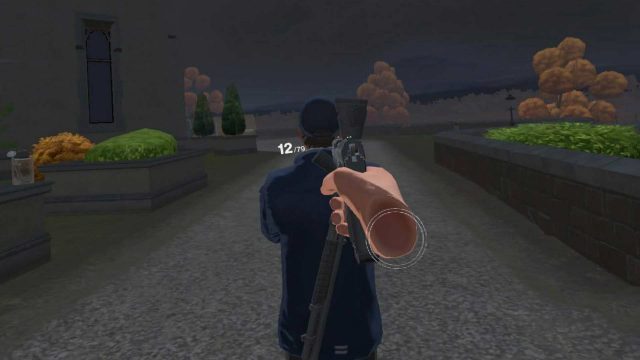
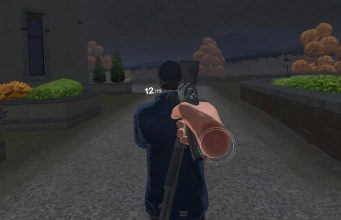
A rebuilt-for-Quest version of the celebrated stealth-action title Hitman 3 seemed almost too good to be true when we first heard about it earlier this summer. While that version technically exists now with the release of Hitman 3 VR: Reloaded, the Quest 3-native is unfortunately ambling out the gate as such a twitchy and ugly mess that you’re probably better off waiting to see whether developers XR Games can deliver the mechanical stability and visual appeal Hitman fans are most certainly accustomed to.
Hitman 3 VR: Reloaded Details:
Available On: Quest 3
Release Date: September 5th, 2024
Price: $30
Developer: XR Games
Gameplay
Before the initial gameplay trailer dropped last month, it seemed Hitman 3 was getting a stylized overhaul, maybe even offering up a cool comic book-style, cel shaded take on things as some images have suggested. Known for massive levels and tons NPCs, all of which have their own agendas, it seemed almost a forgone conclusion that something had to give in order to scrunch the game down to fit through Quest 3’s mobile chipset. Visuals would predictably need to be rejiggered as a way to make everything work. That’s cool. I’m ready for it.
But it seems a lot more than the game’s realism was sacrificed to port it over to Quest. While Hitman 3 VR: Reloaded is technically playable, much of the charm is sadly lost. Gone are a bulk of the game’s cinematic cutscenes, sumptuously detailed interiors, and the moody and expressive lighting. At least at launch, in its place are muddy textures, popping geometry, and blocky copy-paste NPCs—all of it smothered in flat and lifeless lighting that makes everything feel woefully under-baked. I would typically reserve that sort of critique for the Immersion section, but it’s so glaringly bad that it actively detracts from gameplay.
Nearly every mission suffers just as badly as the one seen above, which ought to have been a particularly epic reveal for the beginning of the game where you take on your first real mission in the Burj Khalifa-style skyscraper in Dubai.
One of the main issues (besides just plain looking bad) is the hindrance to object permanence. We’re constantly building mental maps of places and things within them, but if you can’t trust your own eyeballs in VR, what can you trust? Oftentimes I’d run up stairs in a panic, bolting from guards while searching for a hiding spot, only to be greeted with a sea of either blurry or popping textures, and a crowd of NPCs that hadn’t been there a moment before.
The studio says we’ll be getting a ‘Day 4’ update coming on September 9th which addresses the myriad of graphical issues identified by the studio itself, such as popping, texture quality, lighting, game stability when rendering large crowds—the works; not something you want to hear on launch day, or in a launch day review, no doubt.
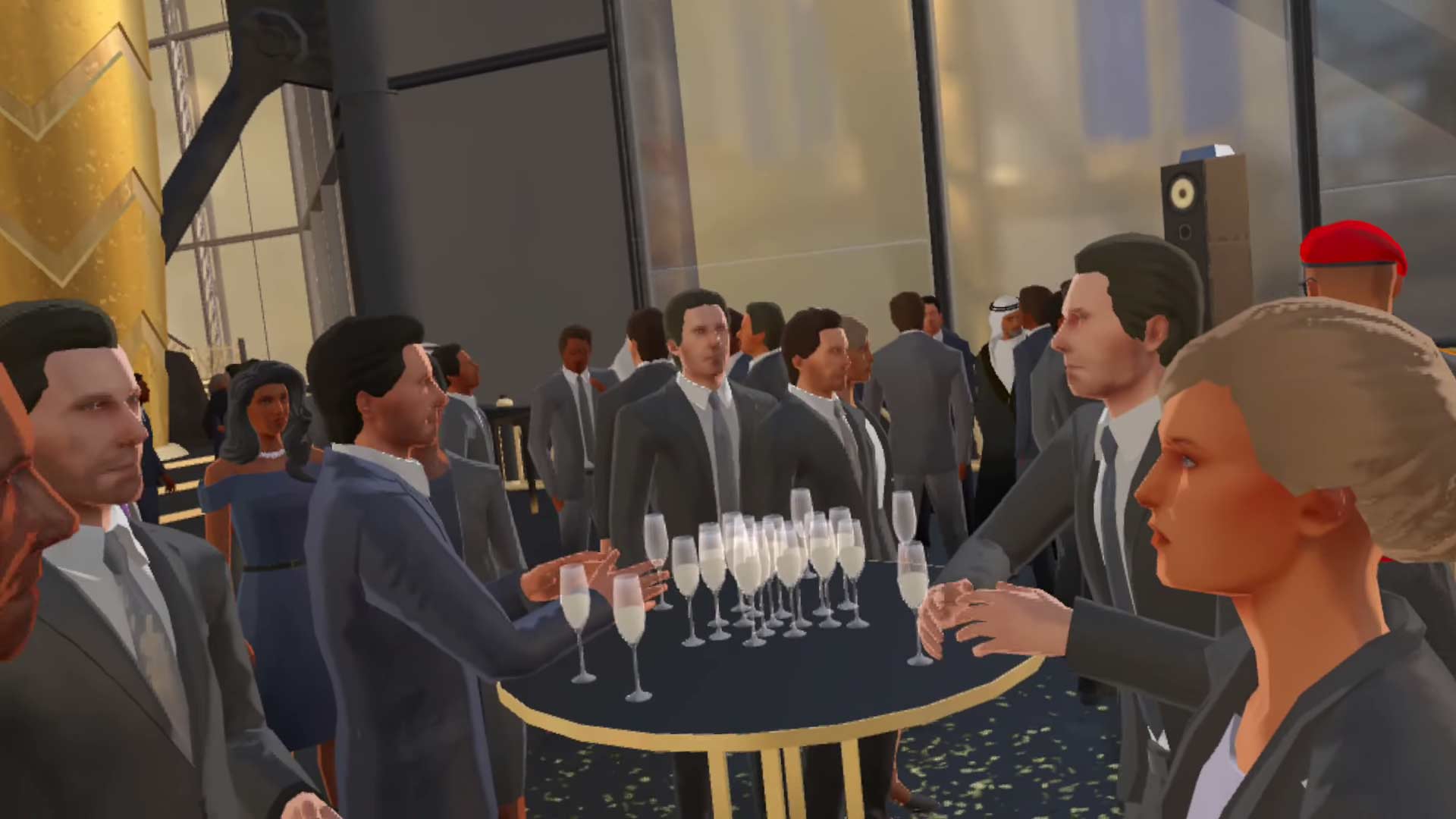 Six of the same NPCs having a chat | Image captured by Road to VR
Six of the same NPCs having a chat | Image captured by Road to VR
In all, it definitely feels like the glitchy and ugly visuals sours the underlying game, which I know from having played on flatscreen can be a thrilling and brain-scratching experience at the best of times, which easily entices the user to replay missions just so you can solve the big moving puzzle in fun and interesting ways.
That can be true with the VR version too, although the poor stability and general jitteriness of every interaction left me feeling more disassociated than wowed at the possibility of sneaking up behind an unsuspecting security guard and choking him out.
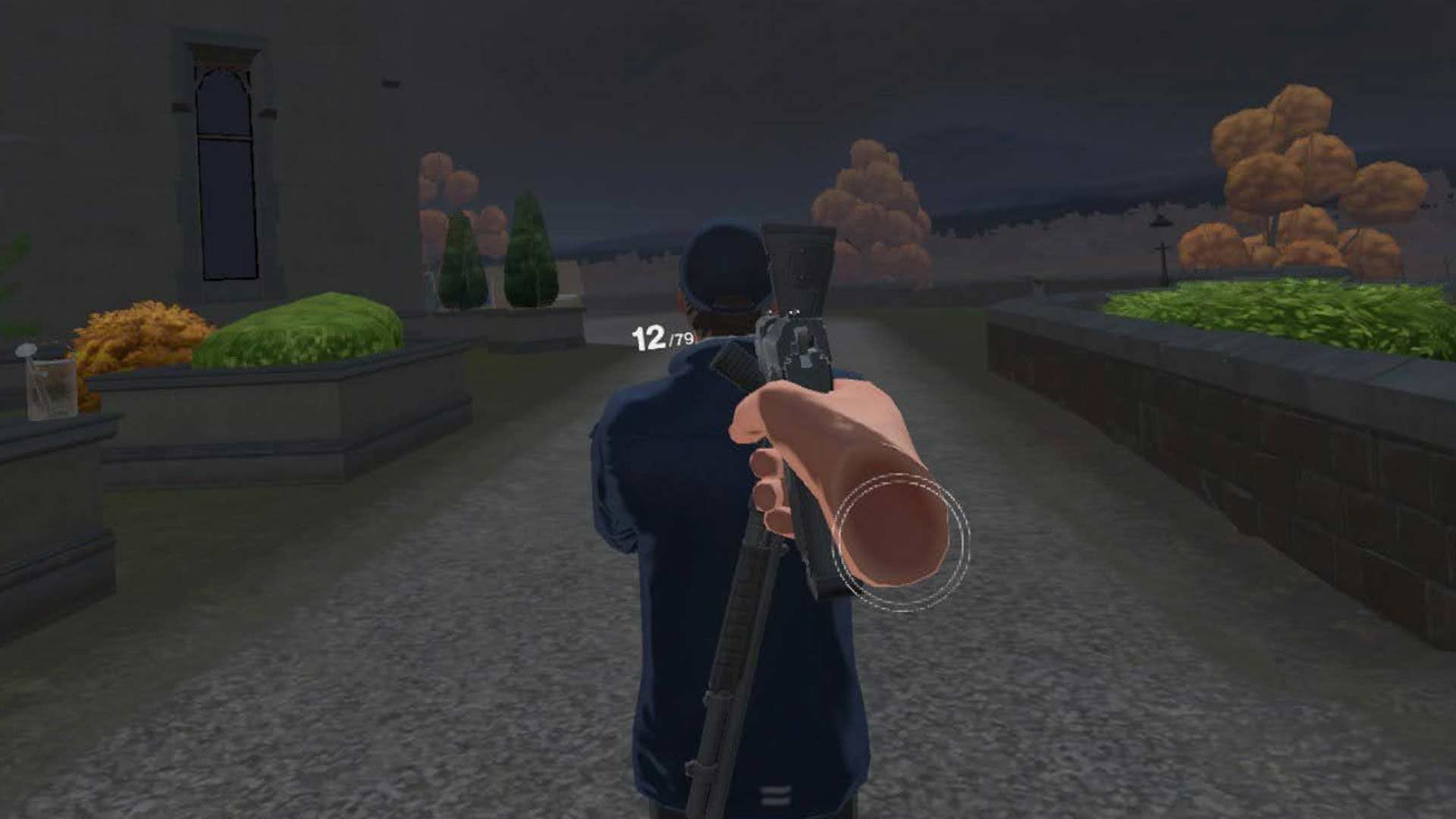 Image captured by Road to VR
Image captured by Road to VR
You can technically do that by grabbing a dude with your own two hands (cool), although many actions are abstracted with ‘Press A to Interact’ instead of, you know, just interacting—a clear holdover from the flatscreen game that makes it feel more like a direct port than a game rebuilt from the ground up for VR. Climbing up a ladder, opening a door, picking up a body—all of them are ‘Press A to Interact’ moments.
I made it through multiple missions, but was so frustrated by the end of them that I never gravitated towards my usual tradition of replaying missions to get Silent Assassin. By the end, I just wanted to play something that wasn’t a blurry, muddy, unpredictable mess.
Immersion
While I’ve played Hitman 3 on flatscreen before, I never jumped into previous VR versions, which are offered as free DLC to HITMAN World of Assassination on both Steam and PS5. Since Hitman 3 VR: Reloaded is a standalone game exclusive to Quest—and you don’t have the flatscreen counterpart to fall back on if for some reason you’re not vibing with VR—it has to stand on its own two legs if it hopes to appeal to Quest users.
In short, if this is your first experience with Hitman, please (please) wait until you hear No Man’s Sky levels of glowing praise before jumping in. Some of its VR-native design shines through, although not nearly enough to make me want to recommend this over the flatscreen game given the state of things.
It’s a shame, because some fairly good VR stuff has made it through, such as a smartwatch with mission map and two hot slots for most-used inventory items for quick and easy holstering and re-holstering. Pulling out and tossing a coin to distract a guard is as effortless as taking it from your own pocket, which is basically ideal.
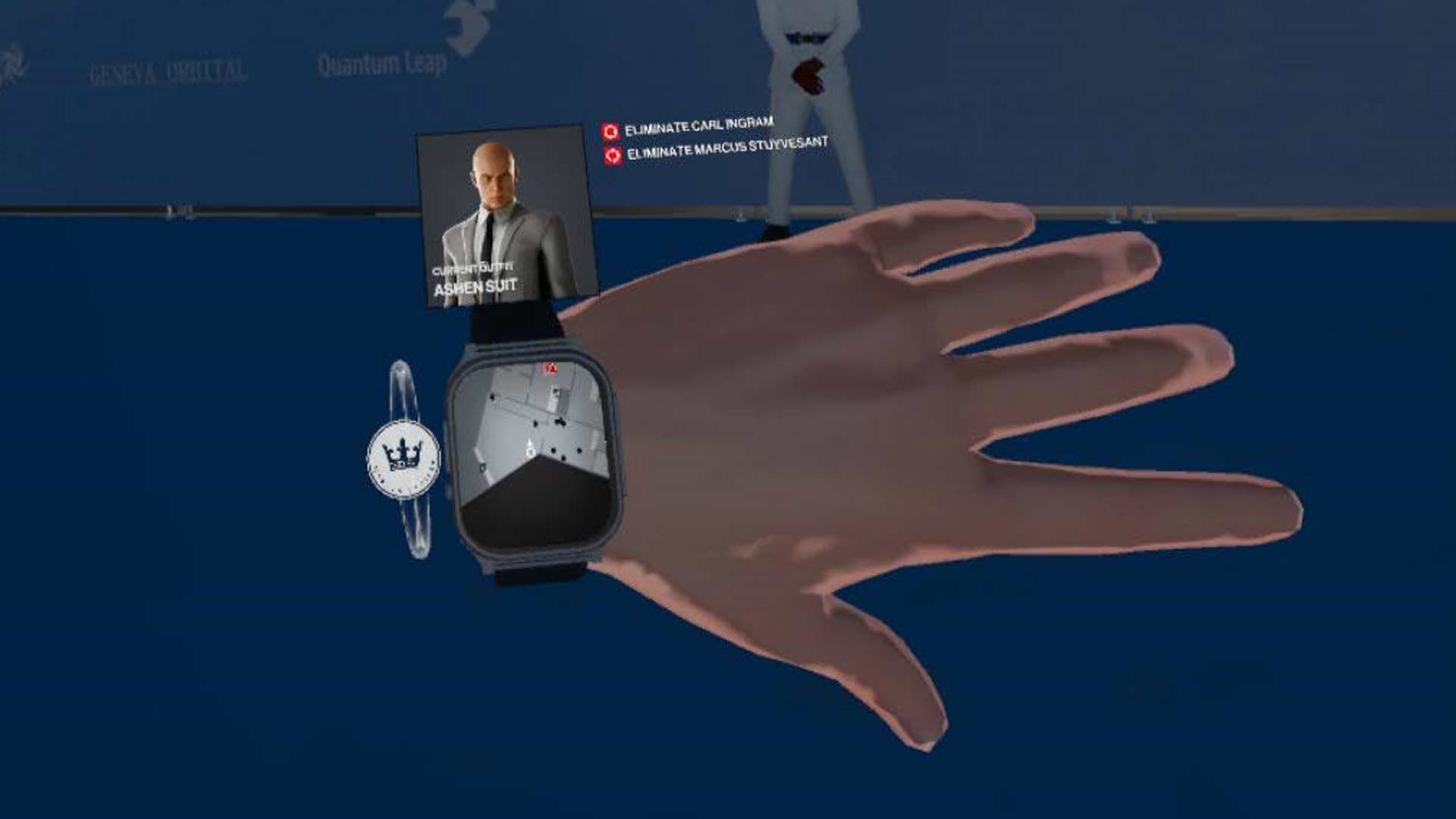 Image captured by Road to VR
Image captured by Road to VR
Still, the game borrows a fair amount of stuff from the flatscreen version, including a bevy of 2D menu selection screens and 2D-style inventory selection, as well as automatic gun reload animations that just feels so out of sync with a game that’s meant to be a more immersive version. Shooting non-scoped weapons is mostly a natural experience, however I feel bullets fly very slowly.
And although understandable from a performance standpoint, sniper scopes don’t work as you’d expect. Raising a scoped rifle to your eye enters you into a gamey full-screen sniping mode that feels ripped straight from the flatscreen version.
But then, as I mentioned above, things popping in and out of view are a constant, with even very small levels suffering from this.
And yet, on the Horizon Store page you’ll find some rather smooth and snappy headlining images which were likely very carefully vetted to put the best foot forward. Still, the game simply does not consistently look this good right now.
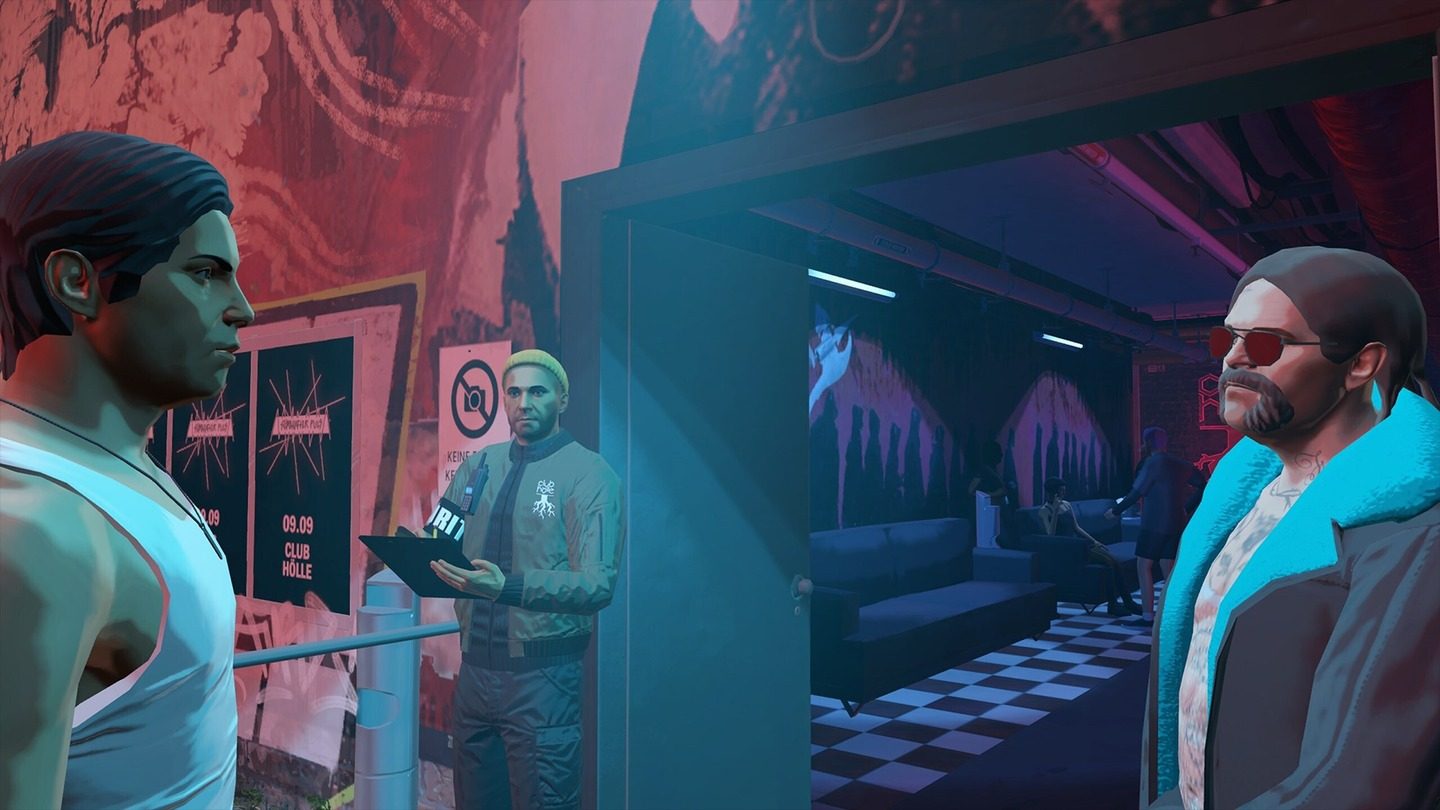 Image courtesy XR Games
Image courtesy XR Games
And the thing is, after playing on Quest 3, I’m not sure it ever will. Hitman 3 might have never been a good choice on current standalone hardware, as the massive simulation needs rock solid stability at its foundation, which it’s sorely lacking.
I wish the studio well in further refining the game and pushing visuals as far as they can, but it’s safe to say we’re still multiple updates away from reaching a minimum acceptable quality.
Comfort
Most of the standard comfort options are available on Hitman 3 VR: Reloaded, making it a very comfortable experience overall. As most levels are on single planes and don’t have an expectation of forced artificial locomotion, like with a minecart ride or something of that nature, VR novices and experts alike should be able to play without any issue.
‘Hitman 3 VR: Reloaded’ Comfort Settings – September 5th, 2024 |
|
Turning |
|
| Artificial turning | |
| Snap-turn |  |
| Quick-turn |  |
| Smooth-turn |  |
Movement |
|
| Artificial movement | |
| Teleport-move |  |
| Dash-move |  |
| Smooth-move |  |
| Blinders |  |
| Head-based |  |
| Controller-based |  |
| Swappable movement hand |  |
Posture |
|
| Standing mode |  |
| Seated mode |  |
| Artificial crouch |  |
| Real crouch |  |
Accessibility |
|
| Subtitles | |
| Languages |
English, French, Italian, German, Spanish (Spain) Russian, Simplified Chinese, Japanese, Traditional Chinese
|
| Dialogue audio | |
| Languages | English |
| Adjustable difficulty |  |
| Two hands required |  |
| Real crouch required |  |
| Hearing required |  |
| Adjustable player height |  |
The post ‘Hitman 3 VR: Reloaded’ for Quest 3 – A Visual & Mechanical Mess appeared first on Road to VR.
This is a companion discussion topic for the original entry at https://www.roadtovr.com/hitman-3-vr-reloaded-quest-3-review/